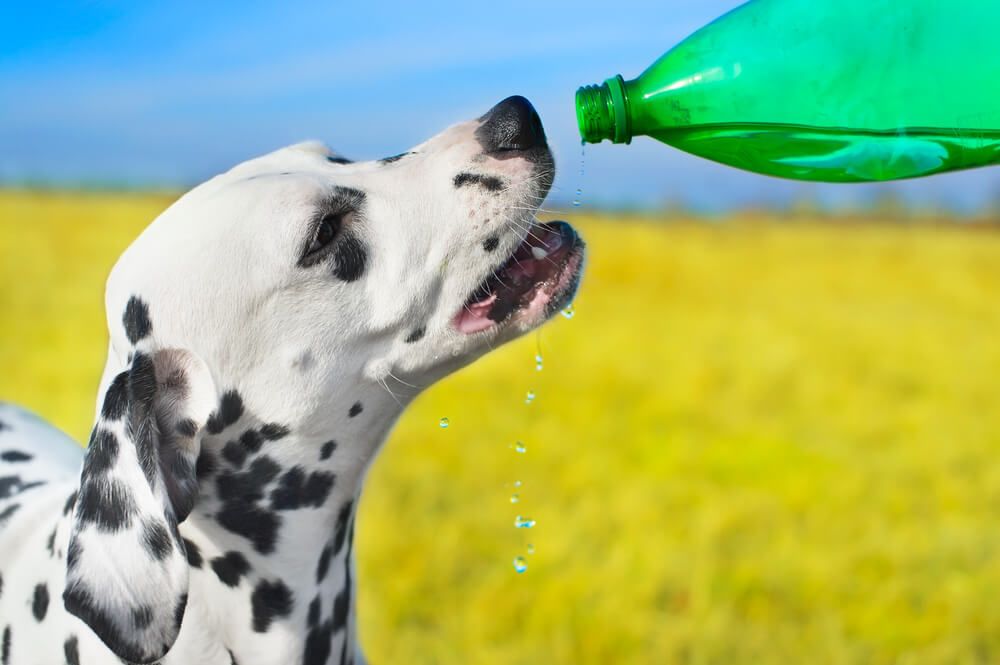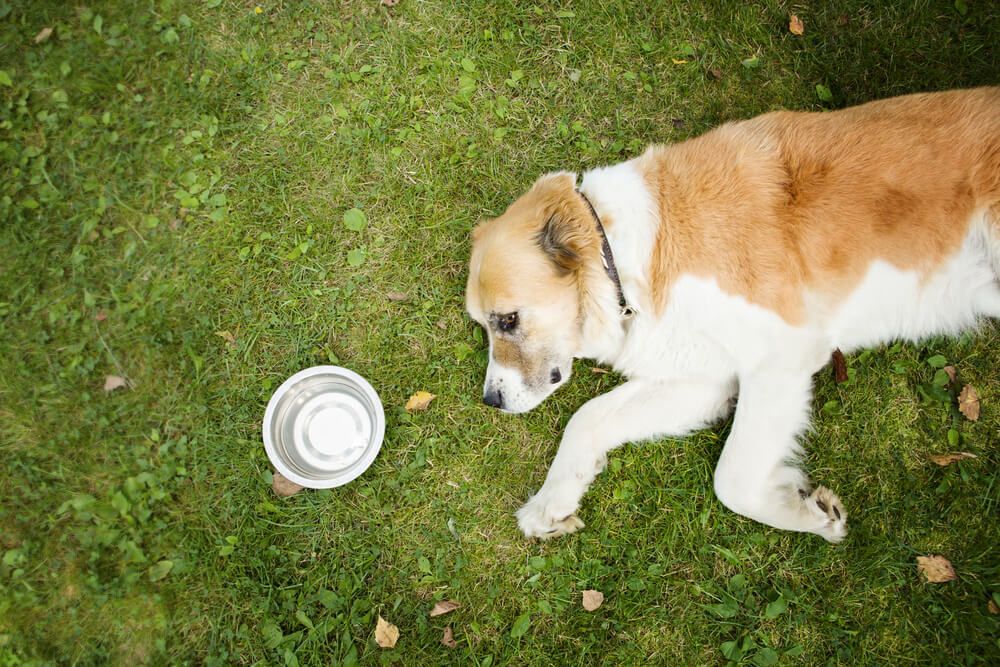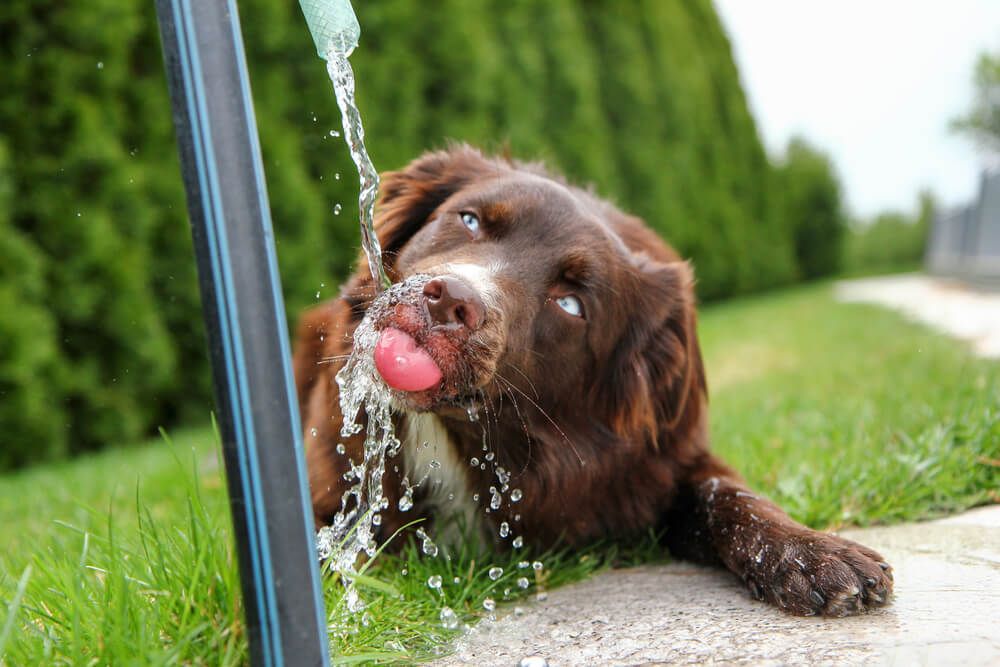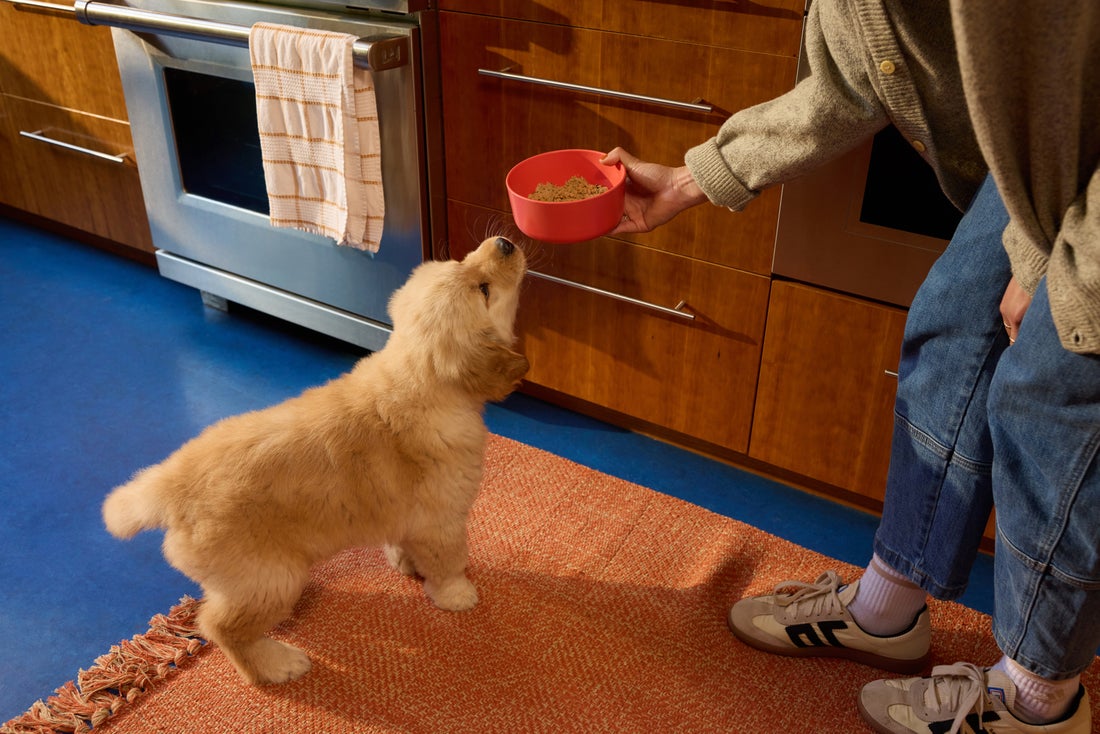Hey Ollie blog readers! We’re offering you an exclusive 60% OFF your starter box! Try now!
Water is necessary for survival, fueling all the body’s chemical processes and performing critical functions such as temperature regulation, digestion, vitamin absorption, joint cushioning and lubrication, waste product removal, and spine and internal organ protection. Although you can appreciate water’s integral role in your dog’s health and well-being, convincing your pooch to drink more water is difficult. Like people, many dogs don’t drink enough water to satisfy their daily requirements, and dehydration occurs, which the following factors can influence:
- Health conditions (e.g., illness, senility, decreased metabolism)
- Cold weather
- Stress or nervousness
- Unclean water or water bowls
- Hard-to-reach water sources (e.g., your arthritic dog doesn’t want to use the stairs to access a bowl on the upper floor)
- Personal preference
How much water should my dog drink?
Each dog’s daily water requirement varies. However, as a general rule most healthy dogs should drink at least one ounce (i.e., ⅛ cup) of water per pound of body weight per day. Because water loss is an ongoing and natural response to various internal processes, dogs need regular opportunities to replenish their hydration and maintain appropriate fluid and electrolyte balances.
Your dog’s individual water needs will increase along with environmental or physiologic demands such as increased heat and humidity, physical exertion or exercise, health conditions that increase water waste through the kidneys (e.g., diabetes, urinary tract disorders, kidney disease), and low-moisture or high-sodium diets. No matter your dog’s condition, they must always have access to fresh water.
Why won’t my dog drink water?
If water is a necessity, why do some pups behave like desert creatures? The answers may be simpler than you think. Healthy dogs don’t drink enough water for these common reasons:
Water hygiene
Although dogs often have questionable tastes (e.g., rolling on stinky things, snacking on poop), they are biologically designed to prefer fresh, clean drinking water. Clean water is safer, healthier, and less demanding on the kidneys than tainted water because it contains no harmful contaminants for the body to filter out. Serve your pup their water in a wide and deep stainless steel or ceramic bowl. Because a dirty bowl can become a bacterial breeding ground, clean your pup’s bowl at least once per day and change the water two to three times per day.
Water location
Where you place your dog’s water bowl can positively or negatively affect their drinking habits. To determine the ideal locations for your dog’s water bowls, consider these factors:
- Where your dog eats — Many dogs polish off their meal by taking a satisfying slurp from their water bowl.
- How your dog moves — If chronic pain or illness compromises your dog’s mobility, place their water bowl in an easily accessible location that doesn’t require them to use the stairs or travel to an area of your house far away from where they usually hang out. In addition, if your dog has neck or back pain, consider serving their food and water in raised bowls.
- Where your dog plays — Physical activity can trigger thirst, so place a bowl within easy reach of your pet’s play area (e.g., by the door to the yard, inside the mudroom or entryway, near the backyard gate where you enter after a walk).
- How the area sounds and feels — If you place the water bowl near noisy, high-traffic, or odiferous areas (e.g., near a litter box or bathroom), you may discourage your dog from taking a drink. Move the water bowl to a central but quiet location that is free from sudden disruptions and bad odors.
Water phobia or aversion
Although rabies is the most well-known cause of canine hydrophobia (i.e., fear of water), because of rabies vaccination laws, the disease is extremely rare. More often, other health conditions, such as painful urinary tract infections (UTIs), oral injuries or dental disease, neck or back pain, or cognitive dysfunction (i.e., canine dementia), cause water aversion.
If the water smells unusual or if something startling occurs while they are drinking (e.g., light reflection on the water or a sudden sound such as collar tags tapping on a metal bowl), a dog can develop a non-medical water aversion. If your dog’s water aversion is behavior-based, give them a new bowl made from a different material, and place it in a new location. If the problem persists, speak to a dog trainer about using desensitization to help your pooch make positive associations with the bowl and the act of drinking water.
Insufficient drinking opportunities
Like people, dogs can learn to incorporate water drinking into their daily routine. Help your pup make hydrating a habit by providing intentional water breaks during exercise, play, or other daily activities. Make water a part of your dog’s mealtime by feeding fresh foods such as Ollie, soaking dry food in warm water, providing homemade broth, or simply refilling their water bowl after they finish eating.

Is my dog dehydrated?
Dehydration occurs when your dog’s water intake doesn’t match their body’s natural fluid loss through panting and urination, and can be accelerated by illness (e.g., vomiting and diarrhea). Dehydration can range from mild to severe and can slow internal processes, making the affected pooch feel unwell. If you’re concerned about your pup’s hydration status, keep an eye out for these dehydration signs:
- Vomiting or diarrhea
- Reduced skin elasticity over the shoulders (i.e., the skin does not bounce back into place when gently pinched and lifted up)
- Lethargy or weakness
- Dry or sticky gums
- Appetite loss
- Excessive panting
- Thick saliva or drool
- Sunken eyes
Discuss significant or persistent health or behavior changes with your veterinarian. If you’re unsure about the amount of water your pet is consuming, fill their bowl using a measuring cup in the morning and remeasure the remaining water at the end of the day.
Simple tips to keep your dog hydrated
Adequate hydration helps your dog’s body process healthy nutrition and make the most of every day. To encourage your pup to step up their water consumption, follow these tips:
- Make water more palatable to your dog — Water isn’t the most exciting element, but you can increase its palatability by using a filter to remove impurities and odors, adding pet-friendly water enhancers to boost flavor and aroma, or offering water at different temperatures (e.g., room temperature, chilled).
- Increase moisture in your dog’s diet — Fresh whole foods, such as those in every Ollie recipe, contain more moisture than traditional dry dog food. Foods with a high-moisture content provide an easy and tasty way to support your dog’s healthy hydration. Each complete and balanced Ollie recipe features human-grade proteins, such as chicken, beef, and lamb, as well as a garden of high-moisture fruits and vegetables rather than dry nutrient-deficient fillers and artificial additives.
- Feed your pup moisture-rich treats — Fresh food and frozen treats can quench your pet’s thirst and help them stay cool. Our favorite moisture-rich treats are single-ingredient options such as fresh-cooked meat chunks, berries, and sliced carrots or apples. Freeze and serve summer favorites, such as seedless watermelon, blueberries, or strawberries, to help your pup stay cool and hydrated.
- Engage your dog’s curiosity with a pet water fountain — Dogs are attracted to flowing water’s sight and sound, which often motivates them to increase their water consumption.
- Offer water during travel — Traveling with your dog can be stressful, and you can easily forget to ensure they take water breaks. Offer your pup fresh water every few hours or whenever you stop to stretch your legs—and theirs!

Consider seasonal changes
When you think about keeping your dog hydrated, you probably worry about them drinking enough in the hot summer sun. You might not know that is is just as easy for your dog to get dehydrated in the winter.
Lower humidity and dry air can make your pup feel dry and thirsty! While you should always have fresh, cool water available to your pup there are a few other things you can do to help keep your pup hydrated in the colder winter months:
- Try offering your dog some bone broth
Since your pup might not drink tea and hot chocolate is off limits, a warm dish of dog friendly bone broth might help keep your pup hydrated. Bone broth contains vitamins, minerals and even some protein. It’s a great choice for pups who might be stressed by the cold weather as well.
2. Offer your pup fresh food in place of kibble
Since we are a fresh food company, we would be remiss not to mention that fresh food has a higher water content than dried kibble. If your pup isn’t drinking enough, this dietary change might help your pup better hydrate. Ollie’s delicious fresh food recipes will please any palate and our human-grade ingredients provide complete and balanced nutrition to pups of all ages, breeds and sizes.
Special tips for special-needs dogs
Senior dogs and those who have medical conditions are at increased risk of dehydration, which can increase their weakened organs’ workload. If your dog is in this category, ensure they have easy access to fresh water at reliable locations or times. A senior dog suffering from sensory loss, dementia, or chronic arthritis may have difficulty locating or reaching their water bowl or may forget to drink water altogether, so pay close attention to your pup’s routine and physical abilities, making accommodations when necessary.
Measuring and recording your dog’s water intake can provide helpful insights about their health, especially if they are suffering from a chronic condition, such as diabetes or kidney disease, or are taking medication. Discuss any sudden changes in your pup’s water intake with your veterinarian.
Water is an essential and simple nutrient for dogs, and any well-meaning pup parent can easily overlook whether their pooch is staying adequately hydrated. Fortunately, fulfilling your dog’s hydration needs is just as easy when you provide them with ample and engaging opportunities to quench their thirst and optimize their overall well-being. Remember, your dog’s water intake is a critical indicator of their internal health, so closely monitor their consumption and report any changes in your pooch’s drinking habits to your veterinarian.
Tagged As:

The nutrition your dog needs,
the food they want.

Enjoying our articles? Subscribe our Newsletters and get new articles directly to your inbox
You might also like
11 September 2025
5 MINS READ
Avoiding Common Dog Food Allergies
No pup parent wants to see their dog struggle through the discomfort and complications that come with food allergies. While food allergies affect just 0.2 percent of dogs according to Banfield Pet…
by Ollie Pets
11 September 2025
5 MINS READ
Signs Your Dog Loves Their Food
When it comes to food and nutrition, most concerns focus on feeding quantities, the quality of ingredients, and maintaining a healthy weight. But have you ever wondered if your dog is actually enj…
by Ollie Pets
26 August 2025
8 MINS READ
Why Is My Senior Dog Shaking?
You’re sitting with your dog and notice something strange. Their body is trembling. It’s subtle at first, but then the shaking becomes more noticeable. Maybe it’s in their legs, or their who…
by Ollie Pets







